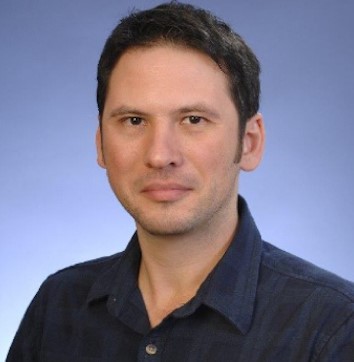Michael Shoham Patrascu
Assistant Prof. Michael Shoham Patrascu
Wolfson Faculty of Chemical Engineering
Postdoctoral 2015-2017, MIT, Process Systems Engineering
Ph.D. 2015, Technion-Israel Institute of Technology, Chemical Engineering. Awarded the best PhD thesis in Process Intensification for the years 2015-2016 by the European Federation of Chemical Engineering
B.Sc. 2008, Technion-Israel Institute of Technology, Chemical Engineering, summa cum laude
Assistant Prof. Shoham-Patrascu returned to Israel and to Technion’s Wolfson Faculty of Chemical Engineering in the summer of 2020, after five years in the U.S., in order to pursue groundbreaking research on process intensification of hydrogen and synthetic fuels production, among other processes.
“Our Process Intensification and Reaction Engineering Lab will strive to revolutionize the way we manufacture fuels and chemicals. One of the main applications we explore is novel scaled-down, efficient processes for hydrogen production using Palladium membrane reactors. This concept has many advantages for applications such as on-board pure hydrogen generators with flexible fuel sources and holds great promise for eliminating the need for expensive hydrogen transport and storage technologies for portable or stationary applications.”
The new lab at Technion will also research the related question of the apparent permeance inhibition effect exhibited in Pd membrane reactors. The measured hydrogen flux observed under real conditions of reaction is much lower than expected (up to 80% less). “We have devised mathematical models to predict system efficiency but have not yet determined the root cause of the apparent drop in flux,” elaborates Asst. Prof. Patrascu. His lab has received funding from the Israel Science Foundation to study surface effects on hydrogen transport through palladium membranes in membrane reactors. A unique experimental approach will be implemented to detect chemical reactions on the membrane surface and try to quantify their impact on the hydrogen’s permeance through the dense membrane.
Another process intensification concept the new group is researching is dewatering membrane reactors. “Removing water molecules in situ may significantly improve the yield and stability of many chemical processes. In particular, we focus on CO2 utilization and synthetic fuels production reactors. This is a very novel and promising concept, with many associated aspects still requiring fundamental research.”
Patrascu was eager to return to Technion after spending five years in the U.S., at MIT and at the ExxonMobil R&D center in New Jersey. His postdoctoral research at MIT entailed optimizing a revolutionary continuous manufacturing process for the pharmaceutical industry. From 2017 until returning to Israel, Patrascu led research at ExxonMobil R&D on process intensification using membranes in the oil and gas industry. The main goals were to increase efficiency and reduce the carbon footprint of the processes. His group designed new processes that incorporate organic membranes and separate aromatics from non-aromatics during the production process.
Petrascu and his wife are both from northern Israel and they wanted their young daughter to live close to their families. “When I left Israel in 2015, my intention was to return to Israel and to the Technion. I love the Technion. I spent many years here and it is like family. When I was a PhD student, I taught four courses as a teaching assistant and that was extremely fulfilling; I have missed teaching and look forward to teaching again.” His doctoral thesis, titled “Scaled Down Hydrogen Production in Palladium-Based Membrane Reactors: Process Design and Experimental Investigations,” was sponsored by the Solar Fuels I-CORE (Israeli Centers of Research Excellence).
The new Process Intensification and Reaction Engineering Lab is in the process of being established and it is expected to be fully operational by summer 2021.


